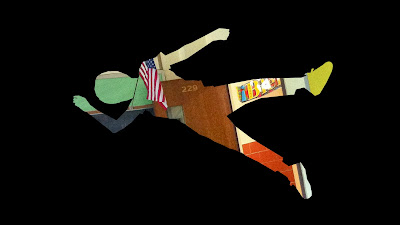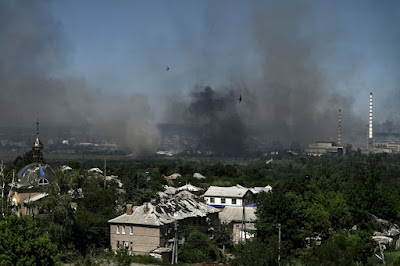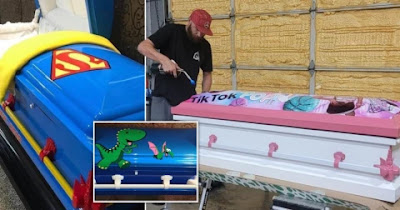 |
| Source: American University |
Today's News . . . Today's Poem
The New Verse News
presents politically progressive poetry on current events and topical issues.
Guidelines
Submission Guidelines: Send 1-3 unpublished poems in the body of an email (NO ATTACHMENTS) to nvneditor[at]gmail.com. No simultaneous submissions. Use "Verse News Submission" as the subject line. Send a brief bio. No payment. Authors retain all rights after 1st-time appearance here. Scroll down the right sidebar for the fine print.
Friday, June 17, 2022
RIGHT ON
Thursday, June 16, 2022
WITHOUT APOLOGY, WILLINGLY I DO IT
by Jacquelyn Shah
 |
| "Him" by Paula Rego |
Because there is no one else to do it, no other woman willing
able qualified skilled articulate
(and certainly no man capable or inclined)
I’ll be the one to do it.
Not only do it but delineate the how and why of it.
Because it’s so extreme widespread persistent long-term deep-rooted––
violence in our world, persecution torture abduction
rape incest murder war subjugation massacre annihilation
(our language is rich with words for various brutalities)
and because it’s carried out by those who hold the power, men––
I hate them. I hate men.
Hate men fervently! Hate them for all the damage they have done and do.
And continue doing and doing and doing...
it never stops: the constant brandishing of weapons
like hands gun rifle rope knife dagger sword bomb penis, etc.
the never-ending violation and violence
of women (yeah, and men), children, babies––yes, babies! Jesus!
Serial murders mass murders executions sometimes necrophilia.
And ongoing destruction of the earth––
Hate them. With all my heart and soul and, especially, brain––
for I have observed, considered and concluded.
I’m willing to hate men. Willing to say I hate them.
Their behavior merits it. But my hatred will never MANifest in violence––
I won’t suppress rape torture murder abduct men.
Though men deserve everything bad they ever get,
I will never give it to them,
but hate them, yes, vigorously, steadfastly!
And dismiss them.
Men. They’re targets of nothing from me
except this quiet hopeless worthless toothless futile
statement made. And repeated, repeated with candor, vehemence:
I, a pacifist, hate men.
All of them? No, not quite all.
Those undeserving get no such ardor,
just a cold shoulder––
because they’re all complicit, especially those in positions of power
who do nothing to change the current killing in our pathetic country.
GRUMPY OLD WHITE MEN
 |
| Man Looking Down his Glasses is a drawing by CSA Images at Fine Art America |
Wednesday, June 15, 2022
MY EX-HUSBAND CALLS TO TELL ME OUR SON HAS BEEN SHOT BY POLICE
 |
| Adam Peter Vespoli |
Tuesday, June 14, 2022
HOW I WILL RAISE MY SON SO HE DOESN’T BECOME THE NEXT MASS SHOOTER
MY CANNOTS
by Kim Malinowski
I cannot say ban guns
I cannot say ban assault rifles
when the Uzi I fired at eight still thrums
its song through my veins, the recoil still smacking muscle
rifle stabled on rusty hood
merging in fierce moment with those before me
deep in warrior chant.
I cannot cannot say ban assault rifles
the morgue has seen enough mangled
enough loved ones pointing at shirts that should be muddy
not tie-dyed with blood.
I cannot cannot cannot watch faces line up
as if on the milk carton shelf
rows of parents, rows of children, wives, lovers, husbands, police
panic the pledge of allegiance
I cannot cannot cannot
cannot see plague
when I prime flintlock, inherit ancestors’
gunpowder
savor gritty aftertaste
WHAT (KIND OF) COUNTRY
by Jen Schneider
 |
| Adam Maida / The Atlantic ; Getty |
what (kind of) country / ‘tis of thee
hosts parents on video streams
to plead for safety of schools & children
/ amidst stains & stained solutions / full
to paint / not of
watercolors / of blood
to stay quiet / not to
nap / to survive
to arm teachers / not of
books / with bullets
to dial 911 / not as
to dodge rocks turned rounds
to climbs hills turned mountains
to fight – against & again
for their lives / before men
in suits / in primetime
what (kind of) country / ‘tis of thee
values weapons more than life
counts more guns than people
hosts rallies alongside funerals
for primetime performance
what (kind of) country / ’tis of thee
identifies children by sneaker color
normalizes imbalance / numbers
of mass shootings & days in a year
with guns the leading cause
of death of children / primed
for primetime performance
what (kind of) country / ‘tis of thee
invokes names & images
of emmett till / napalm girl
on primetime to debate / the value of life
scales forever tilted against the innocent
a country stained & forever shamed
my country / ‘tis of thee
/ of thee i weep
Monday, June 13, 2022
BARBARIANS AT THE GATE
 |
| Russia is likely to seize control of the entire Luhansk region of Ukraine within a few weeks, a senior U.S. defense official said, as Ukraine sustains heavy casualties and its supplies of ammunition dwindle. Such a move would leave Russia short of its war aims of capturing all of Luhansk and Donetsk, which together make up the Donbas region of eastern Ukraine. But it would still amount to a win for Russian forces and create a new de facto front line that could last for some time. —The Washington Post, June 11, 2022. Photo: Black smoke and dirt rise from Severodonetsk during battle between Russian and Ukrainian troops in eastern Ukraine's Donbas region June 9. (Aris Messinis/AFP/Getty Images) |
Sunday, June 12, 2022
WE DIDN’T ASK FOR ONLY
Saturday, June 11, 2022
BEING ROOMMATES WITH A STRIPPER
 |
| The picket line on Lankershim Boulevard in North Hollywood has been loud, energetic, flamboyant, and... costumed. The strippers from Star Gardens have organized for their protection and become a cause célèbre for other organizers and unions across the country. —People’s World, June 6, 2022 |
Friday, June 10, 2022
PAULA REGO DIED TODAY
 |
| The artist Paula Rego, who died [on June 8] aged 87, once said that she liked “to work on the edge”, and her many series of paintings and drawings, about the subjugation of women, abortion and the marriage market, cut across social perceptions of the role of women, and disrupted the male view of women and their sexuality. —The Guardian, June 8, 2022. Above: Abortion protest. Triptych, 1997-98, which helped change public opinion in Portugal. Photograph: Paula Rego, courtesy Marlborough International Fine Art via The Guardian. |
Thursday, June 09, 2022
THE SADDEST DAY OF MY LIFE: JANUARY 6, 2021
 |
| Television crews and technicians prepare for Thursday night's hearing by the House select committee investigating the Jan. 6, 2021, attack at the Capitol, on June 7. (J. Scott Applewhite/AP via The Washington Post) |
Wednesday, June 08, 2022
ST. FRANCIS IN TULSA
 |
| Shot and killed on the campus of Saint Francis Health System in Tulsa on June 1 were (clockwise from top left) patient William Love, physician Preston Phillips, receptionist Amanda Glenn, physician Stephanie Husen. —KOAM, June 2, 2022. |
LOOK, UP IN THE SKY
 |
| Trey Ganem's company, SoulShine Industries, created special caskets for 19 of the 21 victims killed at Robb Elementary School, Uvalde, Texas. |


